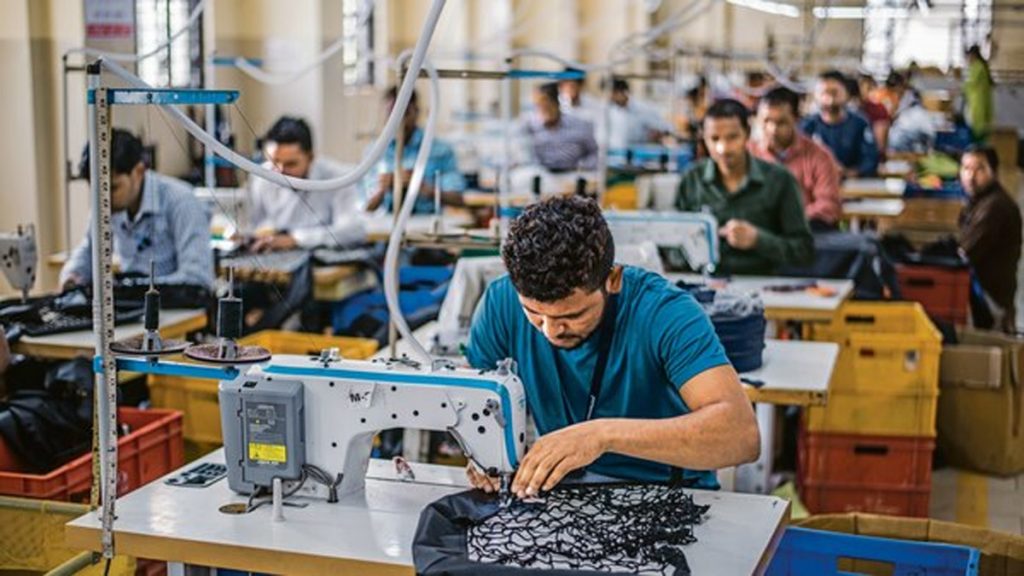Protests are erupting over a decision by some state governments to effect changes in labour laws in the backdrop of the COVID-19 pandemic. Left parties and some others in the Opposition have written to President Ramnath Kovind to stall such efforts. The Congress has also strongly opposed the moves. The issue arose as the BJP governments of Uttar Pradesh and Madhya Pradesh introduced changes in laws to extend working hours to a maximum of 12 hours for various sectors. The explanation given was that the COVID-19 spread and the resultant lockdown created a situation that warranted changes in the laws. Notably, the decision was taken after these governments held discussions with the business community about investment opportunities in these states. Some other state governments have stated that they too might bring in similar amendments to the labour laws.
The labour scenario has been facing serious odds for quite some time, and there have been increasing attempts at curtailing the freedom and protection of the working class. The post Liberalization phase since the 1990s set a new trend and it is now not as easy to organise strikes as it was in the years before the 90s. This has had a positive effect in maintaining labour relations overall, as labour leaders were unable to flex their muscles at the drop of a hat and force company gates to close for unending periods at their whim. The socialist-era concept of viewing entrepreneurs as enemies of society may have gone for good but it has also removed with it basic securities of the toiling masses. On the other hand, the concept that wealth creators are needed for the society to prosper has also come under severe stress. Can these entrepreneurs or wealth creators wallow in prosperity if they have no workers? The truth is that any enterprise to succeed must have a fairly efficient and motivated workforce. The entrepreneur alone is of very little value.
With this background, it should not be the attempt on the part of governments to run roughshod over the rights of the labour class which they have enjoyed for long. Stretching their working hours to 12 from eight or nine as in the present case, is impractical. The physical abilities of human beings may not permit arduous or repetitive labour for such long hours.
The two governments have stated the increase in work hours would be effective for a period of 100 days or three months from its start. Once set, this could most likely become the new norm and the workers will have no way out. Another decision is to cut wages of employees in the interim period. When industry and business are in deep trouble, adjustment in wages is unavoidable. Else, most entities will collapse, which would mean loss of jobs for millions in this country. Such cuts are happening around the world in the COVID-context.
The trade union movement in the country often conducted itself in irresponsible ways in some industrial centres. Industrial operations in these areas suffered immensely, as entrepreneurs looked for peace of mind and freedom to operate in a trouble-free environment. Trade union movements have learnt lessons and are more reasonable of late. This helped in creating a better industrial climate across the country. When trade union movement became weaker, governments and businesses did not try to improve and professionalise the Indian workforce. China still remained the preferred destination for all kinds of imports. The manufacturing sector as a whole has been down and out in India in the past several years due to the Chinese invasion of markets. There is no question that Indian incompetence is unmatched globally. There isn’t a single Indian business house worth its name which has come up the ladder of national or global recognition through an innovative product. Every single Indian corporate has grown big simply by hoodwinking banks, not paying taxes, producing substandard goods and depending on government largesse to dupe the consumer. Their backbone has been utilizing resources of the country for a value much below what that resource would have fetched in the market. It is because of this mentality that Indian industry is incapable of rising to the global expectation and creating an alternative production hub to China.
The concept being sold to us Indians is that the 21st Century belongs to this country. This is as far from the truth as possible. It is time our leaders in all fields of life try to be brief, honest and focused if they wish India to be taken seriously by the global community of nations.
